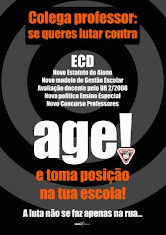Neste blogue praticam-se a Liberdade e o Direito de Expressão próprios das Sociedades Avançadas

[clica na imagem para descarregar o e-livro gratuito]
O EUABC é um dicionário, disponível na internet, que fornece explicações concisas para a maior parte dos termos utilizados nos debates da UE. Poderá também encontrar muitos «links» úteis!
Este dicionário tem igualmente como objectivo informar o público do debate sobre o futuro de Europa.
Inclui muitos termos relacionados com assuntos de debate político, muitas vezes temas de controvérsia e de tensão.
Os federalistas poderão encontrar argumentos e explicações tanto a favor como contra a integração europeia, assim como os euro-cépticos e os europeístas poderão encontrar argumentos em favor das suas posições.
Os conteúdos deste site estão em actualização constante. Assim, vai aqui encontrar novas entradas, relativas à Constituição da União Europeia, aprovada pelos Chefes de Estado e de governo dos Vinte e Cinco a 18 de Junho de 2004. Recomendamos a versão de «leitura amigável», que pode descarregar, através do Menu, secção «Constituição Europeia».
Ireland now has 2.0% of the EU vote
The Lisbon Treaty will halve it to 0.9%
There must still be a majority of states behind each law. The Lisbon Treaty introduces voting according to the exact number of citizens in each state.
See the more precise rules under Voting in the Council and in Art. 238 TFEU in the Lisbon Treaty.
| Nice Treaty | Lisbon Treaty | |||
| % of votes in the Council | Number of votes | % of EU population | Population in millions | |
| Germany | 8.4 | 29 | 16.41 | 82.00 |
| France | 8.4 | 29 | 12.88 | 64.35 |
| United Kingdom | 8.4 | 29 | 12.33 | 61.63 |
| Italy | 8.4 | 29 | 12.02 | 60.05 |
| Spain | 7.8 | 27 | 9.17 | 45.83 |
| Poland | 7.8 | 27 | 7.63 | 38.14 |
| Romania | 4.1 | 14 | 4.30 | 21.50 |
| Netherlands | 3.8 | 13 | 3.30 | 16.49 |
| Greece | 3.5 | 12 | 2.25 | 11.26 |
| Czech Republic | 3.5 | 12 | 2.09 | 10.47 |
| Belgium | 3.5 | 12 | 2.15 | 10.75 |
| Hungary | 3.5 | 12 | 2.01 | 10.03 |
| Portugal | 3.5 | 12 | 2.13 | 10.63 |
| Sweden | 2.9 | 10 | 1.85 | 9.26 |
| Austria | 2.9 | 10 | 1.67 | 8.36 |
| Bulgaria | 2.9 | 10 | 1.52 | 7.61 |
| Denmark | 2.0 | 7 | 1.10 | 5.51 |
| Slovakia | 2.0 | 7 | 1.08 | 5.41 |
| Finland | 2.0 | 7 | 1.07 | 5.33 |
| Ireland | 2.0 | 7 | 0.89 | 4.47 |
| Lithuania | 2.0 | 7 | 0.67 | 3.35 |
| Latvia | 1.2 | 4 | 0.45 | 2.26 |
| Slovenia | 1.2 | 4 | 0.41 | 2.03 |
| Estonia | 1.2 | 4 | 0.27 | 1.34 |
| Cyprus | 1.2 | 4 | 0.16 | 0.79 |
| Luxembourg | 1.2 | 4 | 0.10 | 0.49 |
| Malta | 0.9 | 3 | 0.08 | 0.41 |
| EU-27 Total | 100.0 | 345 | 100.00 | 499.75 |
| Blocking Minority | 26.38% | 91 | 35% | 174,913 |
| Qualified majority | 73.91% | 255 | 65% | 324,838 |
WHO will appoint the Commission?
Today each member state government decides WHO shall be on the Commission in Brussels. The Lisbon Treaty will change the word propose to suggest.Then the new Commission President will decide WHO shall be in the Commission - together with a qualified majority of prime ministers.
Read about the rules under the word Commission and Voting in the Council and see Art. 17.7 TEU in the Lisbon Treaty.
Can migrant workers be paid less?
According to the treaties the EU has no say on salaries. But the EU Court in Luxembourg has decided that migrant workers can work for much less than the normal pay.Read about the rulings in the euabc under Laval, Rüffert, Viking and Luxembourg.
Can the EU decide new taxes?
Taxes can only be harmonised when all member states agree. But the Lisbon Treaty introduces a new clause in Art. 113 TFEU permitting the EU to outlaw tax competition in the Internal Market.Art. 311 TFEU permits the EU to establish new taxes to finance the EU itself.
Read more under Taxes.
Is there a national veto on the WTO?
David O`Sullivan, the Director-General of trade in the EU Commission, says Yes in his comment under World Trade Organisation.Jens-Peter Bonde, MEP from 1979-2008, says mostly No in his comment. Read the different comments and decide on your own. See also Art. 218.8 TFEU in the Lisbon Treaty
Can the EU decide on abortion?
Different books on the Lisbon Treaty
Here you can download different books on the Lisbon Treaty for free.- The Lisbon Treaty - The Readable Version, with its 3000-word alphabetical Index
- Andrew Duff`s introductory booklet. Duff is the constitutional spokesperson for the Liberal group in the European Parliament
- Jens-Peter Bonde`s introduction. Bonde was a member of the European Parliament from 1979-2008 and has led different Euro-critical groups
- Leaflet from the Irish Referendum Commission
- Anthony Coughlan`s 13 Facts on the Lisbon Re-run

The national parliaments or the European Parliament has no say. It is one of 80,000 rules which cannot be changed by the voters. See under "Strawberries" and "Number of laws"
We have managed to establish the existence of more than 80,000 pieces of law in the EU where this fundamental principle of democracy does not apply.
Firstly, we have 26,560 pieces of valid law decided in the European institutions. They can only be amended after a decision by the non-elected members of the Commission. The Council of Ministers must approve important changes by a qualified majority.
The European Parliament can change nothing itself, even if all members of the parliament were to unanimously agree.
Then we have 4,112 international agreements binding citizens and companies in the same way as law. There are also 10,337 verdicts from the EU Court in Luxembourg which can only be amended by new verdicts from the judges or by a new treaty.
Finally we have 44,838 harmonised standards which can normally be amended by the Commission or/and a qualified majority among member states. Again, even a unanimous parliament cannot change them at all after new elections.
European voters are set aside in relation to maybe more than 80,000 rules of laws and harmonisations. We cannot change the content by putting our vote in the ballot box.
Why not insist on the principle of democracy which would say: All laws must be approved by a majority in a national or European Parliament. This does not mean that all 85,832 pieces of hard and soft law must actually be approved by members of parliaments.Those elected by the voters may delegate the more technical decisions to specialised organs.
We would still have democracy if those powers that had been delegated to the common level were able to be brought back by a simple majority in Parliament if necessary. The fact that this is no longer possible means that there is no democracy for the change of these 80,000 hard and soft laws.
Look under "Number of laws" to find the full table of hard and soft laws in the EU. Look under "Democracy" to learn about the decision making process in the EU.




























































0 commentaires:
Enviar um comentário